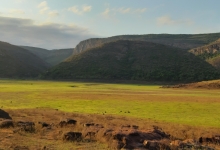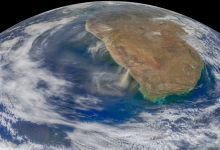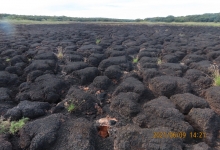Coastal Systems and Earth observation
Coastal ecosystems face complex challenges due to global change, impacting ecological and human wellbeing. These include unsustainable urban development, overexploitation of natural resources and pollution leading to a decline in water and sediment quality, and consequent ecosystem degradation. Overlaying this is the challenge of climate change.
The CSIR Coastal Systems and Earth Observation research group undertakes research and provides consulting services to provide science-based solutions for the optimal use and sustainable management of coastal and marine ecosystems, ensuring environmental, social and economic benefits for South Africa and beyond.
Focus areas and capabilities
Coastal systems
- Pollution and waste: Monitoring, measuring and analysing pollution and its effect on coastal and marine ecosystems to inform management strategies for improved health and sustainability.
- Environmental flows: Evaluating estuarine flow requirements to maintain estuarine health and functionality.
- Climate change: Examining and predicting the impacts of climate change on coastal and marine ecosystems and developing strategies for resilience and adaptation.
- Environmental governance: Science support for effective policies and practices to ensure sustainable use of coastal and marine resources.
- Ecosystem rehabilitation and restoration: Identifying opportunities and approaches to restore degraded coastal and marine ecosystems to promote ecosystem services.
Earth Observation
Support the development of remote sensing technologies for application in freshwater, coastal and marine systems by:
- Sensor application development: Validating the performance of satellite sensors in aquatic environments.
- Developing algorithms: Development of algorithms for satellite-derived freshwater, coastal and marine indicators.
- Model validation: Validating algorithms and models for marine ecosystem characterisation.
- Phytoplankton monitoring: Creating algorithms to identify phytoplankton types and harmful algal blooms.
- Freshwater ecosystem analysis: Using geographical information systems (GIS) and remote sensing to monitor freshwater biodiversity and water quality.
Facilities
Explore our state-of-the-art facilities.
Our SANAS-accredited environmental chemistry laboratory provides comprehensive environmental sample testing capabilities.
Our environmental ecotoxicology laboratory performs toxicity testing on wastewater, water and sediment using a range of tests that include:
- Sea urchin fertilisation test;
- Sea urchin embryo-larval test; and
- Amphipod survival test.
Field surveys and monitoring
We perform field surveys in coastal and marine ecosystems to assess ecological health and environmental impacts in support of sustainable management.
Our field survey equipment includes:
- Various in situ water quality monitoring instruments capable of measurements at depths of up to 80 metres;
- Moored monitoring instruments for continuous long-term measurement of water quality, waves and currents;
- Sediment grabs of various types and sizes for shallow and deep water deployment;
- Fish survey gear, including beam and otter trawls, seine and fyke nets;
- Phytoplankton and zooplankton nets; and
- Survey vessels.








